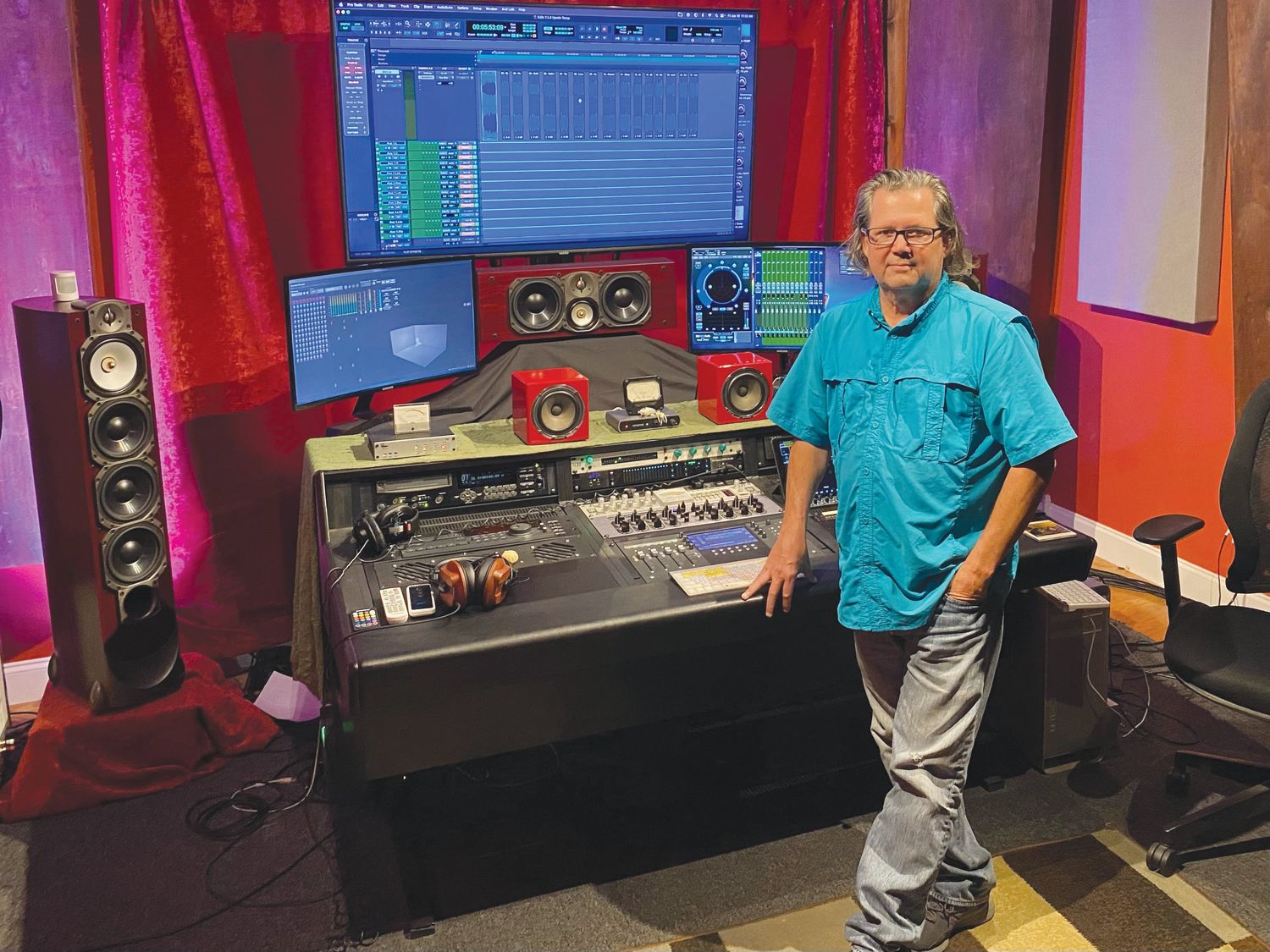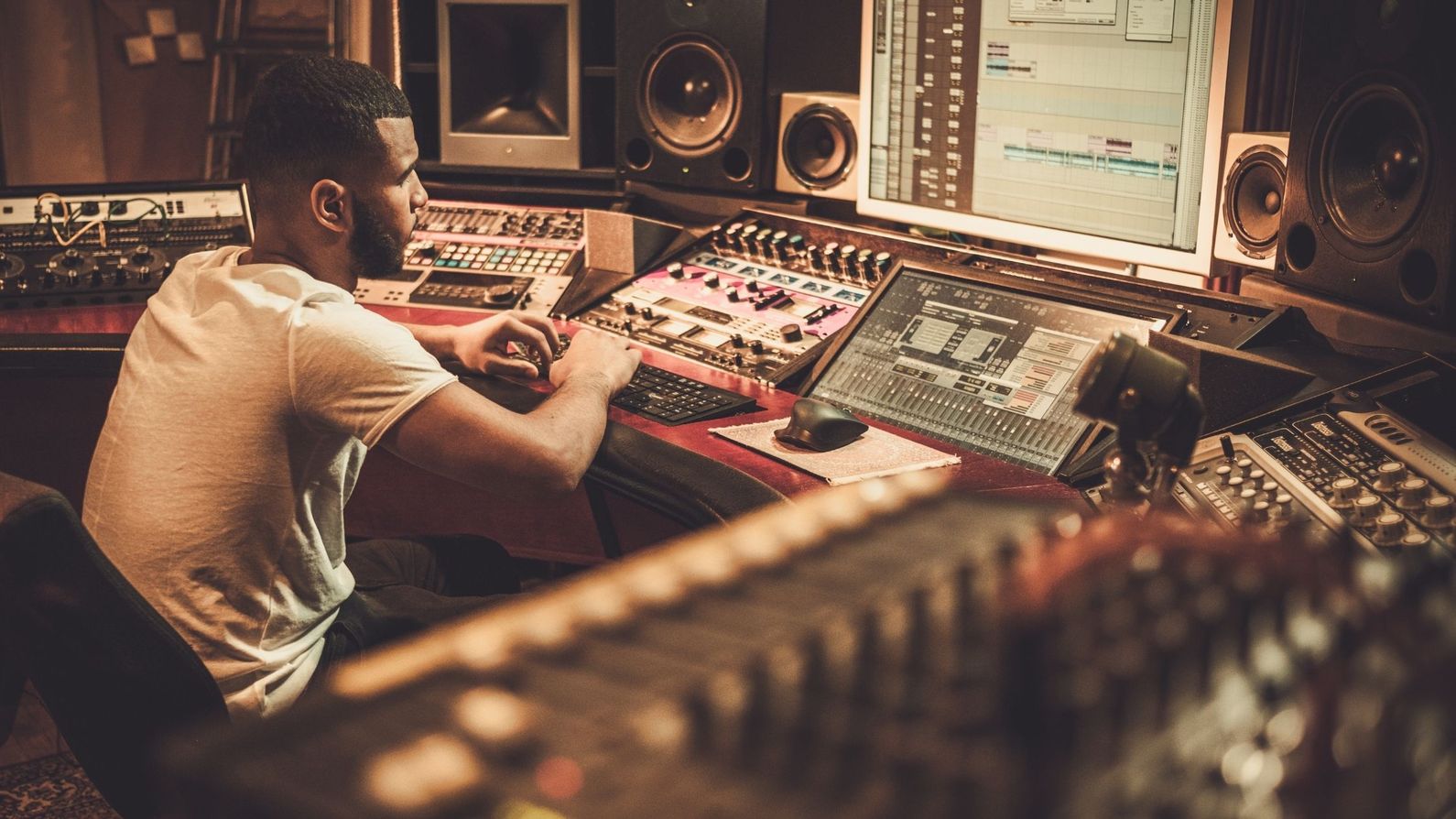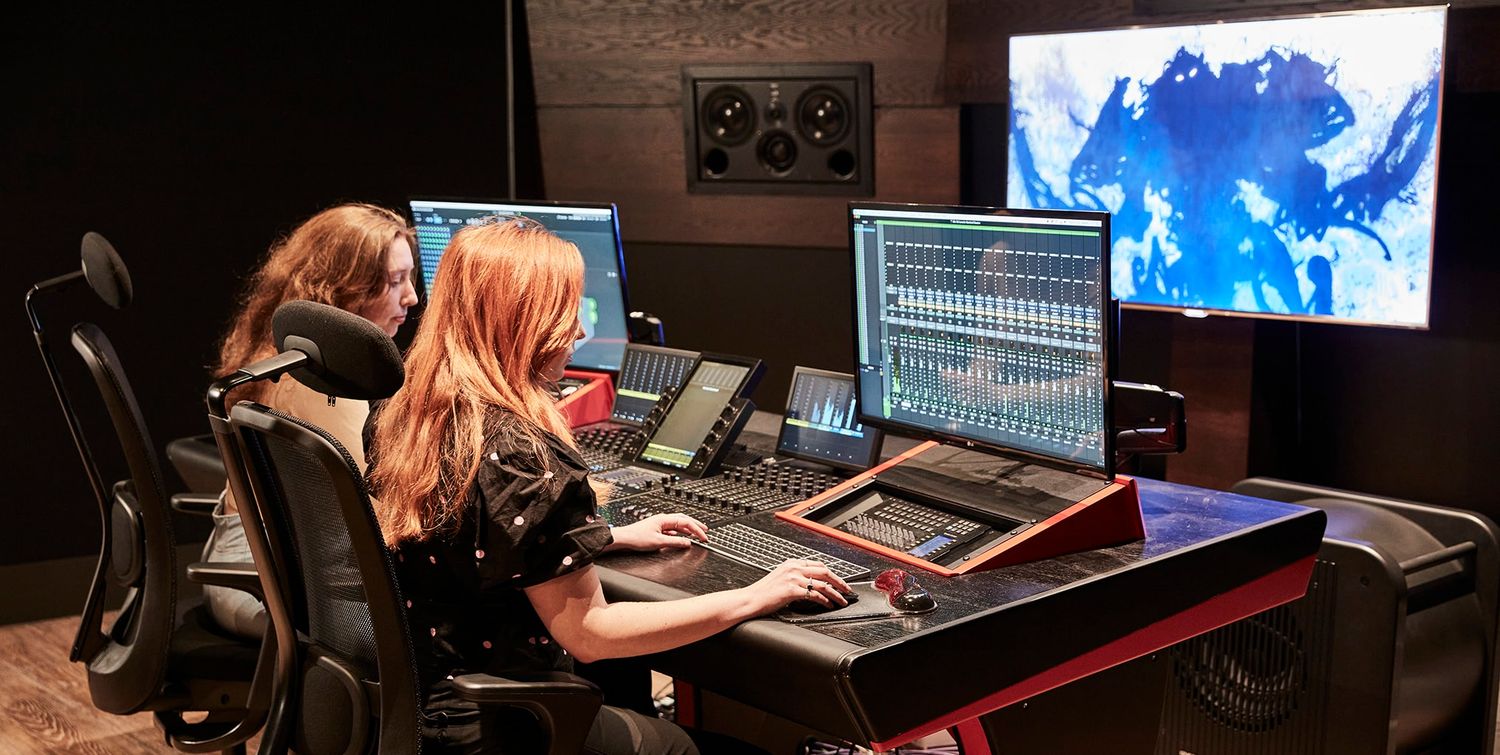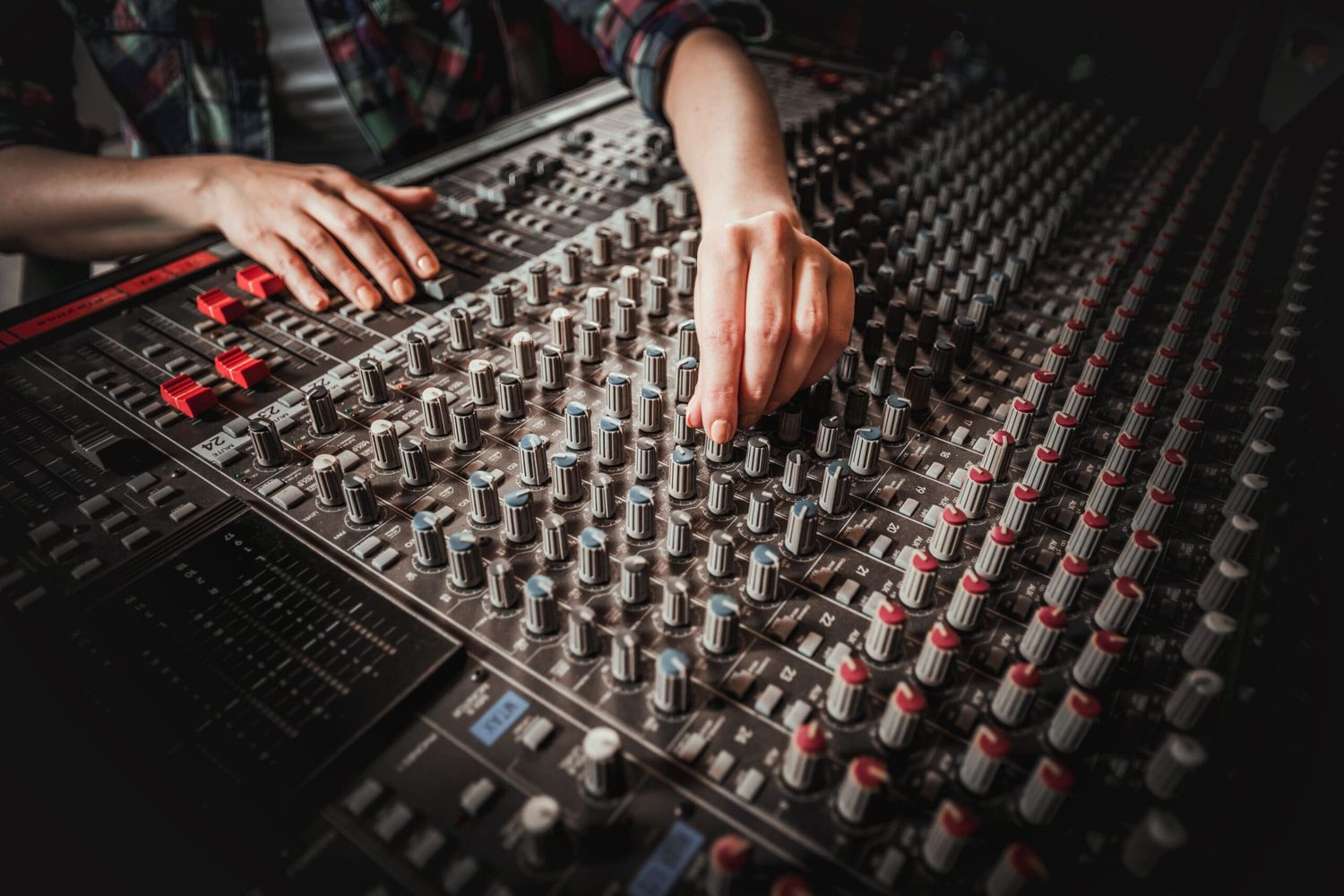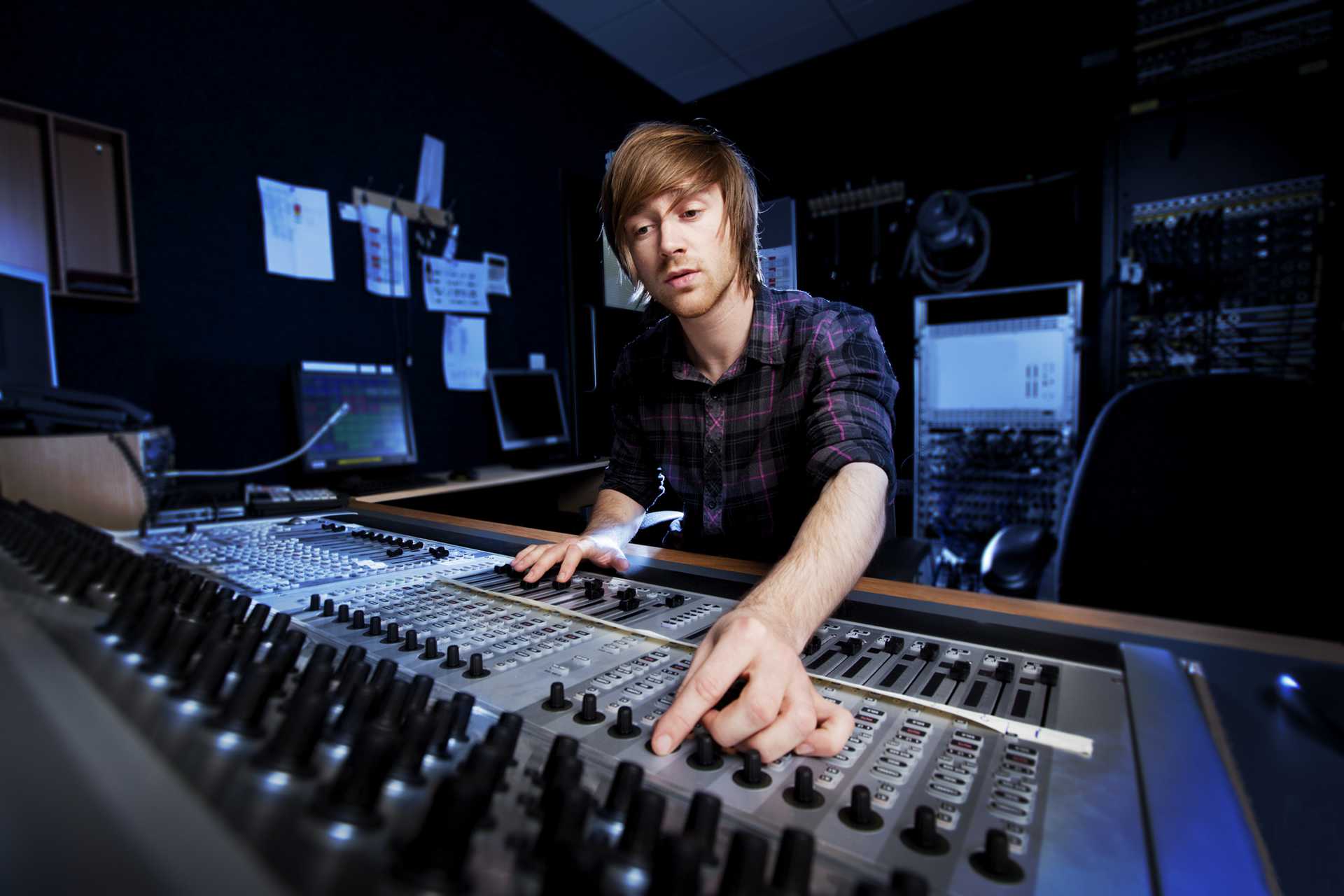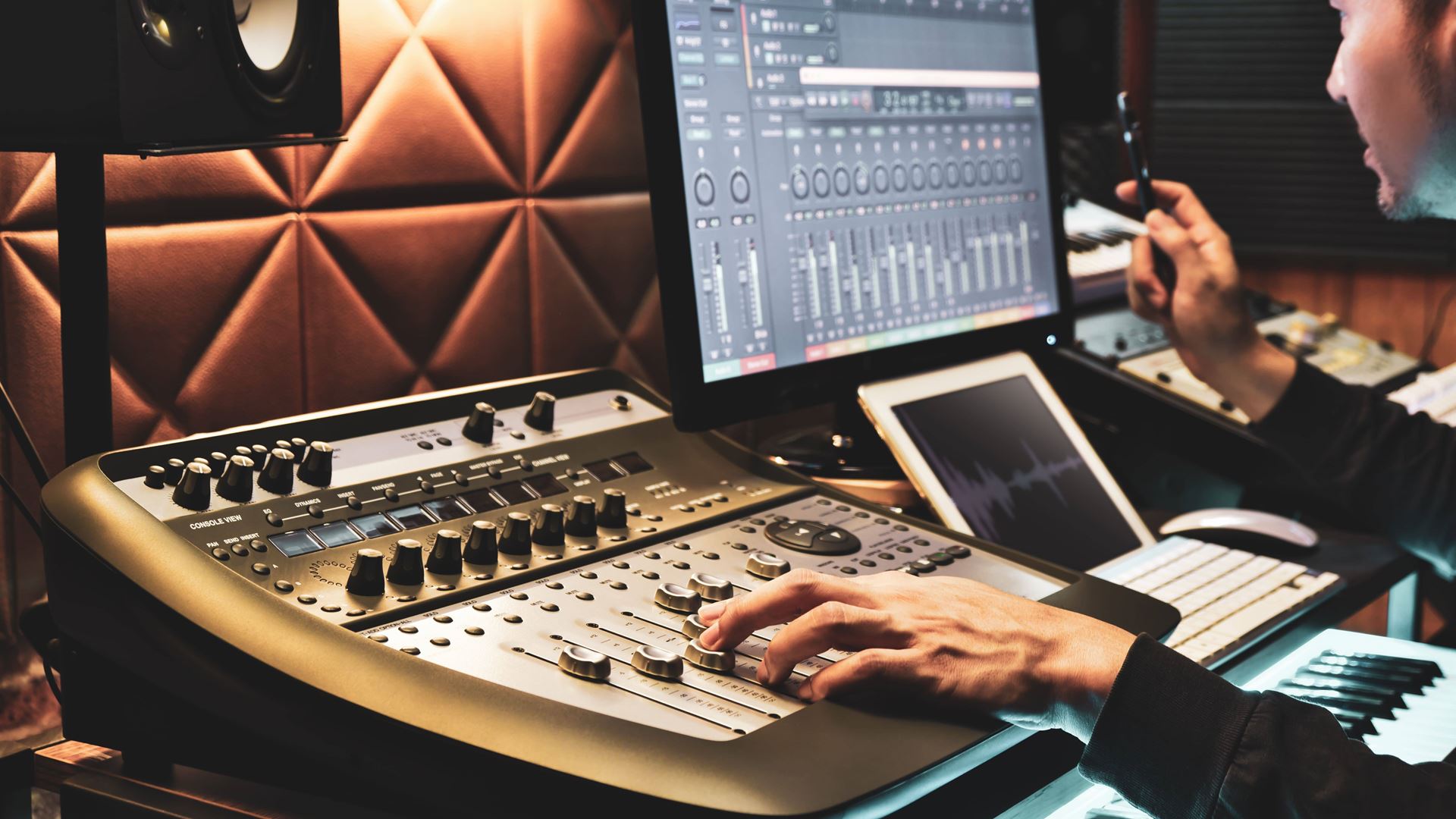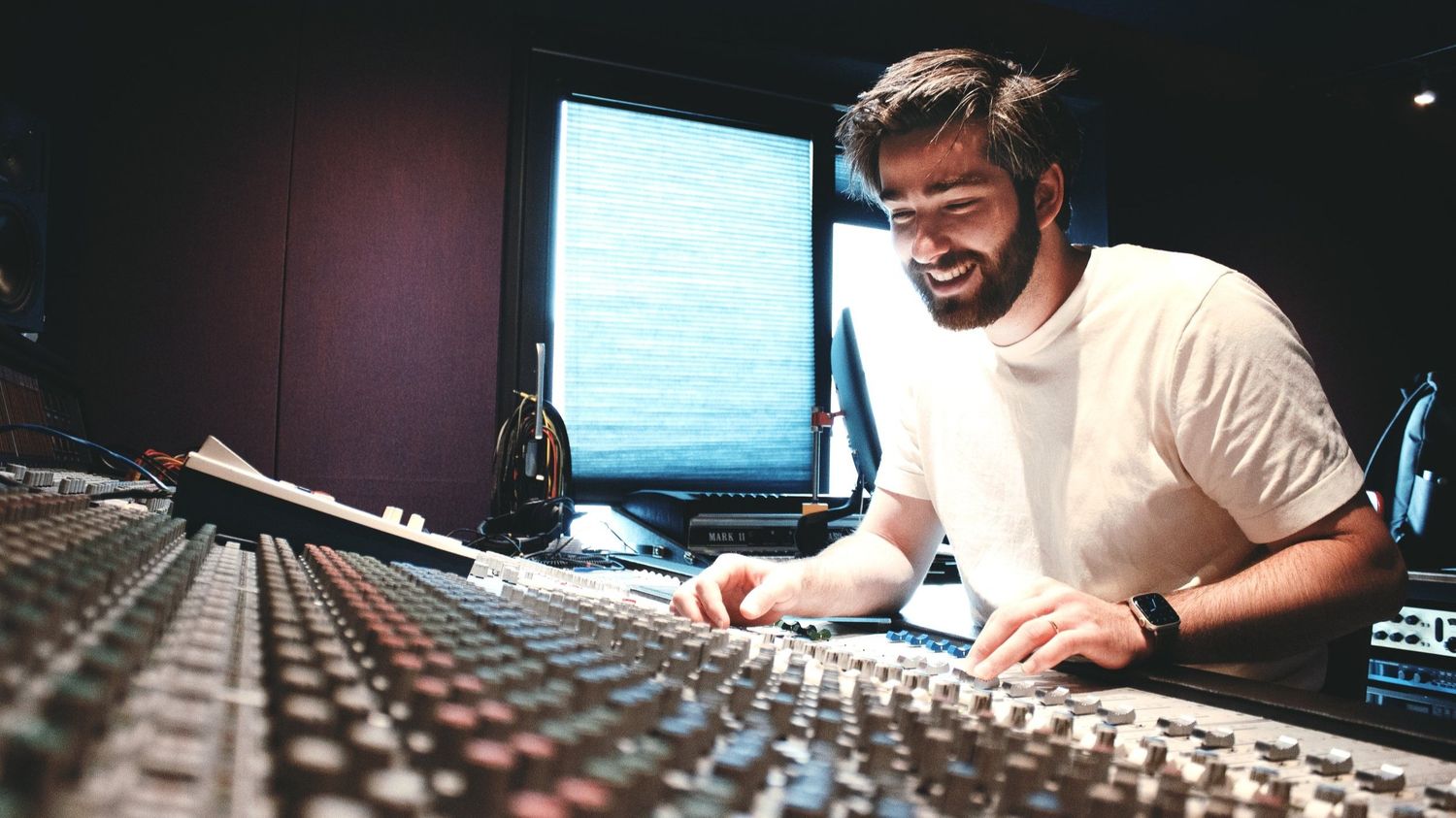Home>Production & Technology>Sound Engineer>How Do I Become A Live Sound Engineer
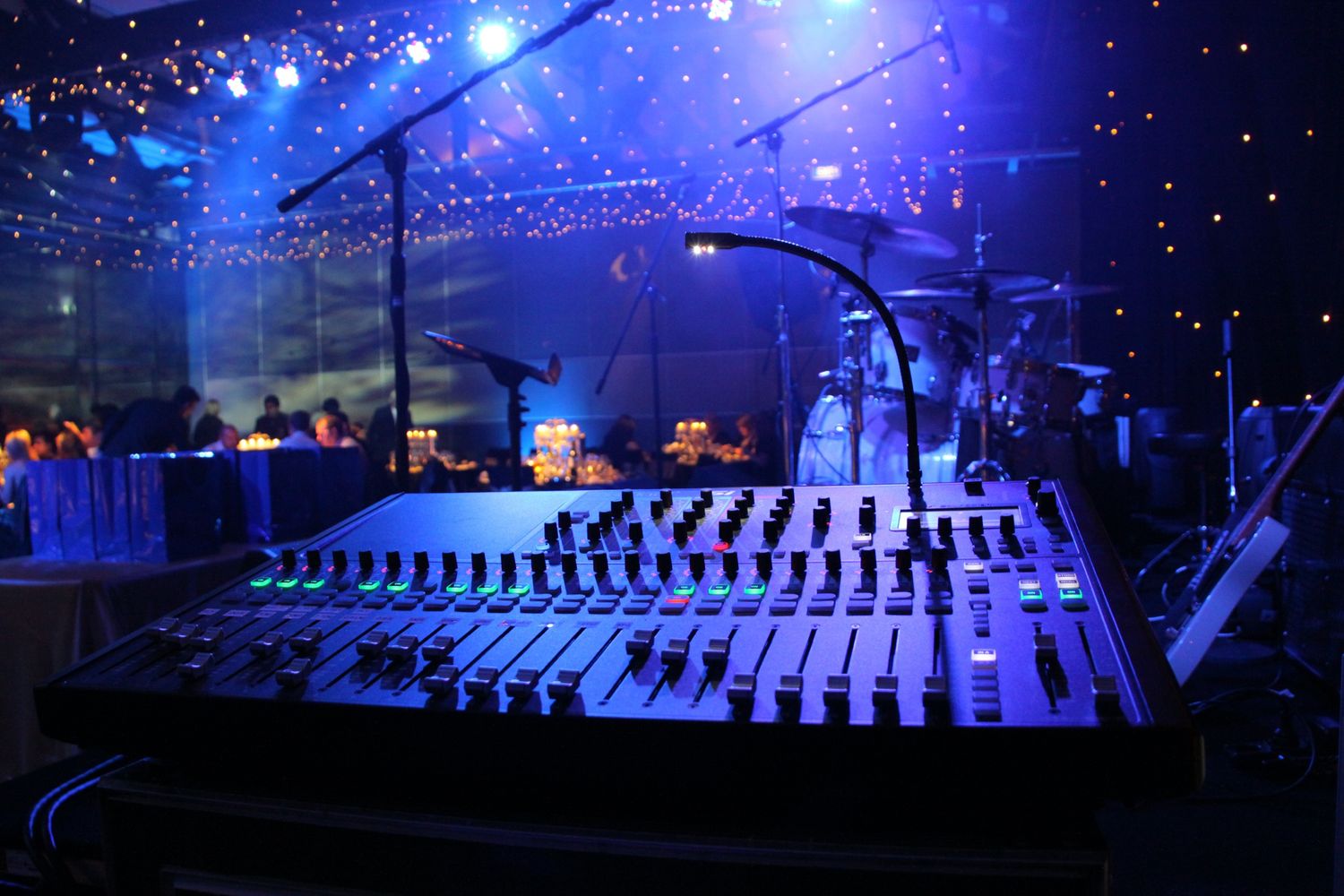

Sound Engineer
How Do I Become A Live Sound Engineer
Published: March 7, 2024
Learn how to become a skilled sound engineer and kickstart your career in live sound production. Gain insights into the essential skills and training needed to succeed in the sound engineering industry.
(Many of the links in this article redirect to a specific reviewed product. Your purchase of these products through affiliate links helps to generate commission for AudioLover.com, at no extra cost. Learn more)
Table of Contents
Introduction
Becoming a live sound engineer is an exciting and rewarding career path for individuals passionate about music, technology, and live performances. As a live sound engineer, you play a crucial role in ensuring that audiences experience the best possible sound quality during concerts, festivals, and other live events. Your expertise in audio equipment, acoustics, and sound mixing directly impacts the overall enjoyment and success of a live performance.
In this comprehensive guide, we will explore the steps and strategies to embark on a fulfilling journey as a live sound engineer. From understanding the role and responsibilities to gaining practical experience and building a network within the industry, we will delve into the essential aspects of this dynamic profession. Additionally, we will discuss the significance of technical skills, education, and training, as well as the business acumen required to thrive in the live sound engineering field.
Whether you aspire to work with renowned musicians, manage sound for large-scale events, or contribute to the magic of live entertainment, this guide will equip you with valuable insights and actionable steps to pursue a successful career as a live sound engineer. Let's embark on this enriching journey together and uncover the multifaceted world of live sound engineering.
Understanding the Role of a Live Sound Engineer
As a live sound engineer, your role is pivotal in ensuring the delivery of high-quality audio experiences during live events. You are responsible for managing the sound reinforcement systems, including microphones, amplifiers, and speakers, to achieve optimal sound quality for performers and audiences alike. Your expertise in audio equipment, acoustics, and sound mixing directly influences the overall success of a live performance.
In essence, a live sound engineer acts as the bridge between technology and artistry, seamlessly blending technical proficiency with a deep understanding of musical nuances. Your primary objective is to create a balanced and immersive auditory experience, where every instrument and vocal is heard with clarity and precision. This involves meticulous attention to detail, as well as the ability to adapt to diverse musical genres and performance styles.
Moreover, the role of a live sound engineer extends beyond technical proficiency. You are entrusted with the task of collaborating closely with musicians, performers, and event organizers to comprehend their sonic vision and translate it into a captivating live sound experience. This demands effective communication skills, keen listening abilities, and a proactive approach to problem-solving, as you navigate the dynamic and fast-paced environment of live events.
Furthermore, as a live sound engineer, you are an integral part of the live event production team, working in tandem with lighting technicians, stage managers, and other professionals to orchestrate a seamless and immersive live experience. Your role requires adaptability, as you may be working in a variety of venues, from intimate clubs to large outdoor arenas, each with its unique acoustic challenges and technical requirements.
In summary, the role of a live sound engineer is multifaceted, blending technical expertise with artistic sensibilities and effective collaboration. By mastering the intricacies of sound reinforcement and live event production, you have the opportunity to shape the sonic landscape of live performances and contribute to unforgettable auditory experiences for both artists and audiences.
Education and Training
Embarking on a career as a live sound engineer necessitates a solid foundation in audio engineering principles and technical proficiency. While formal education is not always a mandatory requirement, pursuing relevant training and academic programs can significantly enhance your skills and employability in this competitive field.
Academic Programs
Enrolling in a specialized audio engineering program or a related field, such as sound production, can provide comprehensive theoretical knowledge and hands-on experience with industry-standard equipment. Many universities, technical institutes, and specialized audio schools offer degree programs and certifications tailored to audio engineering and live sound production. These programs cover a wide array of topics, including acoustics, signal processing, sound reinforcement systems, and live event production.
Technical Training
In addition to formal education, seeking technical training through workshops, seminars, and online courses can further augment your expertise in live sound engineering. These resources often focus on practical skills, such as operating mixing consoles, setting up sound systems, troubleshooting audio issues, and understanding the intricacies of live sound reinforcement. Furthermore, technical training provides valuable insights into the latest advancements in audio technology and industry best practices, ensuring that you stay abreast of evolving trends and innovations.
Apprenticeships and Internships
Gaining hands-on experience through apprenticeships or internships with established sound companies, recording studios, or live event production firms is invaluable for aspiring live sound engineers. These opportunities allow you to work alongside seasoned professionals, observe live sound setups, and actively participate in the execution of sound reinforcement for various events. Moreover, apprenticeships and internships provide a platform to apply theoretical knowledge in real-world scenarios, refine your technical skills, and cultivate a deeper understanding of the practical challenges inherent in live sound engineering.
Continuous Learning
The dynamic nature of audio technology and live event production necessitates a commitment to continuous learning and skill refinement. Engaging in self-study, attending industry conferences, and seeking mentorship from experienced professionals can further enrich your knowledge and expertise in live sound engineering. Additionally, staying updated with industry publications, audio forums, and online resources enables you to stay informed about emerging trends, equipment advancements, and innovative sound reinforcement techniques.
In essence, a combination of formal education, technical training, practical experience, and a dedication to lifelong learning forms the cornerstone of a well-rounded education and training strategy for aspiring live sound engineers. By embracing a holistic approach to skill development, you can position yourself for success in this dynamic and rewarding field.
Gaining Practical Experience
Gaining practical experience is a pivotal phase in the journey of becoming a proficient live sound engineer. While theoretical knowledge forms a solid foundation, hands-on experience is indispensable for honing technical skills, developing problem-solving abilities, and familiarizing oneself with the intricacies of live event production.
Live Event Opportunities
One of the most effective ways to gain practical experience is by actively seeking opportunities to work at live events. This could involve collaborating with local bands, community theaters, or small venues to provide sound reinforcement for their performances. By immersing yourself in the live event environment, you can familiarize yourself with the setup and operation of audio equipment, troubleshoot technical issues in real time, and refine your ability to adapt to diverse performance spaces and acoustic challenges.
Volunteer and Freelance Work
Volunteering to assist established sound engineers at live events or offering freelance sound engineering services can provide invaluable hands-on experience. Whether it's setting up microphones, managing stage monitors, or fine-tuning sound levels during a performance, these opportunities allow you to actively engage with the technical aspects of live sound reinforcement while building a portfolio of practical experience.
Shadowing Seasoned Professionals
Seeking opportunities to shadow experienced live sound engineers can offer a wealth of insights and practical knowledge. By observing their workflow, problem-solving approaches, and interaction with performers and event organizers, you can gain a deeper understanding of the nuances involved in delivering exceptional live sound experiences. Additionally, shadowing professionals provides a platform to ask questions, seek guidance, and learn from their real-world expertise.
Equipment Familiarization
Becoming proficient with a wide range of audio equipment is essential for a live sound engineer. Actively familiarizing yourself with different mixing consoles, amplifiers, microphones, and signal processing units not only enhances your technical prowess but also instills confidence in handling diverse setups and configurations during live events. This hands-on familiarity with equipment is instrumental in ensuring seamless and efficient sound reinforcement.
Reflective Practice
Engaging in reflective practice after each live event experience is crucial for continuous improvement. Analyzing the challenges faced, identifying areas for enhancement, and recognizing successful strategies employed during live sound engineering endeavors fosters a mindset of continual growth and refinement. This reflective approach enables you to evolve as a live sound engineer, refining your skills and adapting to the dynamic demands of live event production.
In essence, gaining practical experience as a live sound engineer involves active engagement with live events, hands-on involvement with audio equipment, and a commitment to continual learning and improvement. By immersing oneself in the practical aspects of live sound reinforcement, aspiring engineers can cultivate the expertise and confidence necessary to excel in this dynamic and exhilarating field.
Building a Network in the Industry
Building a robust network within the live sound engineering industry is a pivotal step towards establishing a successful and sustainable career. Networking provides opportunities to connect with fellow professionals, industry experts, potential employers, and collaborators, fostering a supportive ecosystem that can open doors to new projects, insights, and career advancements.
Industry Events and Conferences
Attending industry events, trade shows, and audio engineering conferences offers a platform to meet and engage with professionals from diverse sectors of the live sound industry. These gatherings provide opportunities to exchange ideas, gain exposure to the latest technological advancements, and forge meaningful connections with industry peers and potential mentors.
Online Communities and Forums
Engaging in online communities, forums, and social media groups dedicated to live sound engineering facilitates networking on a global scale. Participating in discussions, sharing insights, and seeking advice from experienced professionals not only expands your knowledge base but also cultivates valuable connections within the industry.
Collaborative Projects
Collaborating on projects with musicians, event organizers, and fellow sound engineers presents an avenue to build professional relationships while showcasing your skills and work ethic. By actively participating in collaborative endeavors, you can demonstrate your expertise, establish credibility, and cultivate lasting partnerships within the live sound community.
Industry Associations and Organizations
Joining industry-specific associations and organizations, such as the Audio Engineering Society (AES) or the International Live Events Association (ILEA), provides access to a network of professionals, industry events, and resources. These platforms offer opportunities to connect with like-minded individuals, stay informed about industry trends, and gain visibility within the live sound engineering community.
Mentorship and Guidance
Seeking mentorship from seasoned professionals in the live sound industry can offer invaluable insights and guidance as you navigate your career path. Establishing mentor-mentee relationships fosters personal and professional growth, providing access to wisdom, experience, and a supportive network that can significantly impact your journey as a live sound engineer.
Continued Engagement
Consistent and genuine engagement with industry peers, mentors, and collaborators is essential for nurturing and expanding your professional network. Whether through in-person interactions, virtual communication, or collaborative projects, maintaining active involvement within the industry reinforces your presence and fosters enduring connections.
In summary, building a network within the live sound engineering industry is a multifaceted endeavor that involves active participation in industry events, online communities, collaborative projects, and professional associations. By cultivating meaningful connections and fostering genuine relationships, aspiring live sound engineers can lay the groundwork for a thriving and fulfilling career in this dynamic and vibrant field.
Developing Technical Skills
Developing technical skills is a fundamental aspect of preparing for a successful career as a live sound engineer. Mastery of technical competencies not only enhances your ability to deliver exceptional sound experiences but also instills confidence in handling diverse audio setups and addressing complex challenges inherent in live event production.
Acoustic Principles and Sound Theory
A comprehensive understanding of acoustic principles and sound theory forms the bedrock of technical proficiency for live sound engineers. Familiarity with concepts such as sound waves, frequency response, and room acoustics equips you with the knowledge to optimize sound reinforcement systems and mitigate acoustic challenges in various performance venues.
Equipment Operation and Maintenance
Proficiency in operating and maintaining a wide array of audio equipment, including mixing consoles, amplifiers, microphones, and signal processors, is essential for seamless live sound engineering. Mastering the intricacies of equipment setup, signal routing, and troubleshooting empowers you to efficiently manage sound reinforcement systems and deliver consistent, high-quality audio experiences.
Sound Mixing and Processing
The art of sound mixing and processing is a cornerstone of live sound engineering. Developing expertise in balancing audio levels, applying equalization, and implementing dynamic processing techniques enables you to sculpt the sonic landscape of live performances, ensuring clarity, balance, and sonic cohesion across diverse musical genres and performance styles.
Monitoring and Feedback Management
Proficient management of stage monitoring systems and feedback suppression techniques is crucial for facilitating optimal onstage sound for performers. Acquiring skills in setting up stage monitors, providing artists with clear and tailored monitor mixes, and effectively managing feedback issues contributes to a seamless and immersive live performance environment.
Live Event Production Techniques
A comprehensive grasp of live event production techniques, including stage layout, microphone placement, and sound system optimization, is indispensable for executing successful live sound reinforcement. Proficiency in coordinating with stage crews, lighting technicians, and event organizers enhances your ability to orchestrate cohesive and impactful live event experiences.
Adaptability and Problem-Solving
Cultivating adaptability and effective problem-solving skills is essential for navigating the dynamic and fast-paced environment of live events. The ability to swiftly address technical challenges, adapt to evolving performance dynamics, and troubleshoot unforeseen issues is pivotal for delivering seamless and exceptional live sound experiences.
In essence, developing technical skills as a live sound engineer encompasses a multifaceted approach, encompassing theoretical knowledge, hands-on proficiency with audio equipment, and the ability to adapt and innovate in response to the demands of live event production. By honing these technical competencies, aspiring live sound engineers can position themselves for success in this exhilarating and dynamic field.
Understanding the Business Side of Live Sound Engineering
Understanding the business aspects of live sound engineering is essential for aspiring professionals seeking to thrive in this dynamic industry. While technical expertise forms the core of the profession, a comprehensive understanding of the business side is pivotal for long-term success and sustainability. This encompasses various facets, including client relations, project management, financial considerations, and industry trends.
Client Relations and Communication
Effective client relations are integral to the success of live sound engineering projects. This involves clear and proactive communication with event organizers, artists, and production teams to comprehend their specific sound requirements, budget constraints, and artistic vision. Building strong and collaborative relationships with clients fosters trust and ensures that the sound engineering solutions align with their expectations and overall event objectives.
Project Management and Logistics
Proficient project management skills are crucial for overseeing the logistical aspects of live sound engineering projects. This encompasses meticulous planning, equipment coordination, and scheduling to ensure seamless execution of sound reinforcement for live events. Additionally, the ability to adapt to evolving project dynamics, anticipate potential challenges, and implement effective contingency plans is essential for successful project management in the live sound industry.
Financial Considerations and Budgeting
Understanding the financial aspects of live sound engineering projects is imperative for maintaining profitability and sustainability. This involves creating detailed budgets, cost analysis, and resource allocation to optimize the financial efficiency of sound reinforcement endeavors. Moreover, negotiating contracts, pricing services competitively, and adhering to budgetary constraints are essential components of the business side of live sound engineering.
Industry Trends and Market Analysis
Staying abreast of industry trends, technological advancements, and market dynamics is essential for informed decision-making and strategic planning in live sound engineering. This includes monitoring emerging audio technologies, analyzing market demands, and identifying opportunities for diversification and innovation within the industry. By understanding industry trends, live sound engineers can adapt their services to meet evolving client expectations and market demands.
Legal and Regulatory Compliance
Navigating legal and regulatory requirements is a critical aspect of the business side of live sound engineering. This involves understanding licensing regulations, copyright considerations, and compliance with industry standards to ensure ethical and lawful practices. Additionally, familiarity with insurance requirements and liability considerations is essential for mitigating risks associated with live event production.
In summary, understanding the business side of live sound engineering encompasses client relations, project management, financial acumen, industry analysis, and legal compliance. By integrating these business aspects with technical expertise, aspiring live sound engineers can cultivate a well-rounded skill set that positions them for success in this vibrant and competitive industry.
Conclusion
Embarking on the journey to become a live sound engineer is a thrilling and multifaceted endeavor that demands a blend of technical proficiency, practical experience, and a comprehensive understanding of the industry landscape. Throughout this comprehensive guide, we have explored the essential components that contribute to a successful career in live sound engineering, from understanding the role and responsibilities to acquiring technical skills, gaining practical experience, and navigating the business aspects of the profession.
Aspiring live sound engineers are encouraged to approach their career path with a holistic mindset, embracing a combination of formal education, technical training, and hands-on experience to cultivate a well-rounded skill set. The pursuit of continuous learning, whether through academic programs, industry events, or collaborative projects, is pivotal for staying abreast of technological advancements and industry best practices.
Furthermore, building a robust network within the live sound engineering community is instrumental for fostering professional relationships, gaining mentorship, and accessing opportunities for career advancement. By actively engaging with industry peers, participating in collaborative projects, and seeking mentorship from seasoned professionals, aspiring live sound engineers can establish a supportive ecosystem that propels their career growth.
Moreover, the business aspects of live sound engineering, including client relations, project management, financial acumen, and industry analysis, are integral components that contribute to long-term success and sustainability in the field. Understanding the intricacies of client communication, project logistics, financial considerations, and legal compliance equips live sound engineers with the acumen to navigate the dynamic landscape of live event production.
In conclusion, the path to becoming a proficient live sound engineer is characterized by a commitment to technical excellence, a dedication to practical experience, and a nuanced understanding of the business dynamics within the industry. By embracing these foundational elements and continually refining their skills, aspiring live sound engineers can embark on a fulfilling and impactful career, contributing to the magic of live performances and shaping unforgettable auditory experiences for audiences worldwide.


